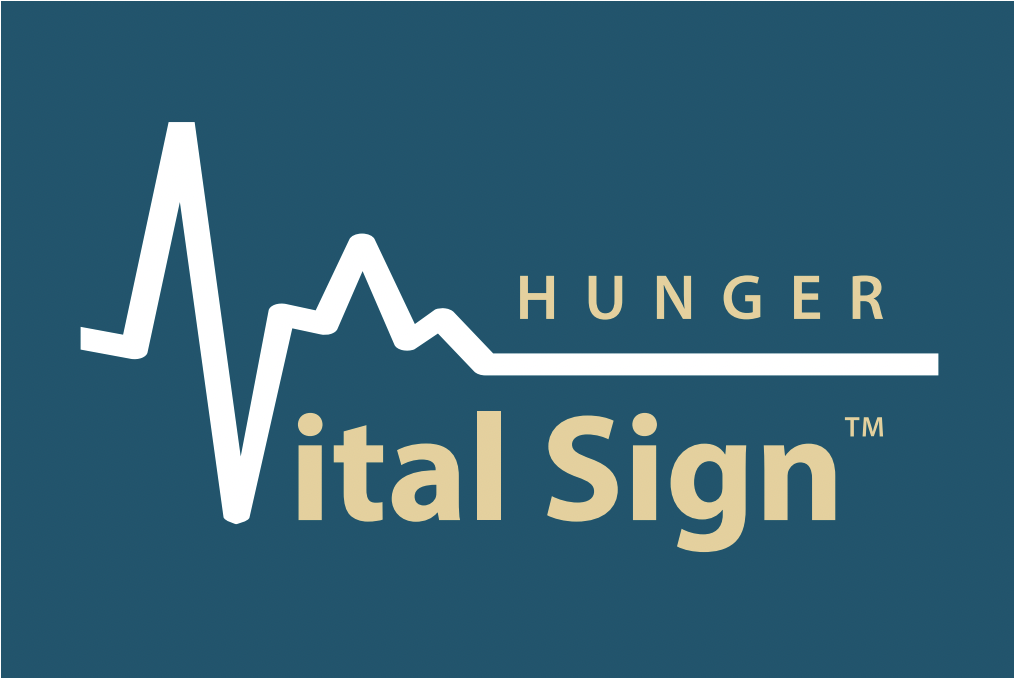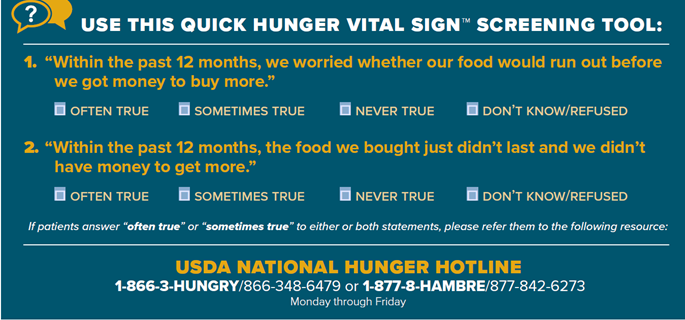Poverty, food insecurity, and poor nutrition have serious consequences for health and well-being.
As trusted voices on health, well-being, and more, health care providers have a vital role to play in identifying and addressing patient food insecurity (aka screening and intervening). Anti-hunger organizations are key to building and supporting this work.
Learn how providers and anti-hunger organizations can work to connect patients to federal nutrition programs that are proven to improve nutrition, health, and well-being.

Addressing Food Insecurity in Clinical Spaces
Partner Spotlight

Hunger Vital Sign Community of Practice
FRAC co-convenes with Children’s HealthWatch the Hunger Vital Sign National Community of Practice, which works to foster conversations and collective action among stakeholders interested in addressing food insecurity through a health care lens.

Learn More: Screen & Intervene Resources
- Trainings and Tools
- Screen & Intervene: A Toolkit for Pediatricians to Address Food Insecurity
- Screen & Intervene: Addressing Food Insecurity Among Older Adults Online Training
- Ten Advocacy Actions Pediatricians Can Take To Address Childhood Food Insecurity
- Connecting Families to WIC: A Practical Toolkit for Health Care Providers
- Flyers for Your Clinic
- You Don’t Need To Choose Between Food And Medicine (English, Spanish)
- Free Healthy Food for Your Growing Child (English, Spanish, Mandarin Chinese)
- Reports
- What Anti-Hunger Advocates Need to Know About Standardized Screening for Food Insecurity and Other Health-Related Social Needs
- Connecting Patients to SNAP & WIC in Health Care Settings Research Brief
- Food as Medicine Survey Findings: How Anti-Hunger Organizations Partner With Health Care Providers to Address Food Insecurity
- Health Care Provider Survey Findings: Addressing Food Insecurity Among Older Adults — Health Care Provider Beliefs, Practices, and Resources

